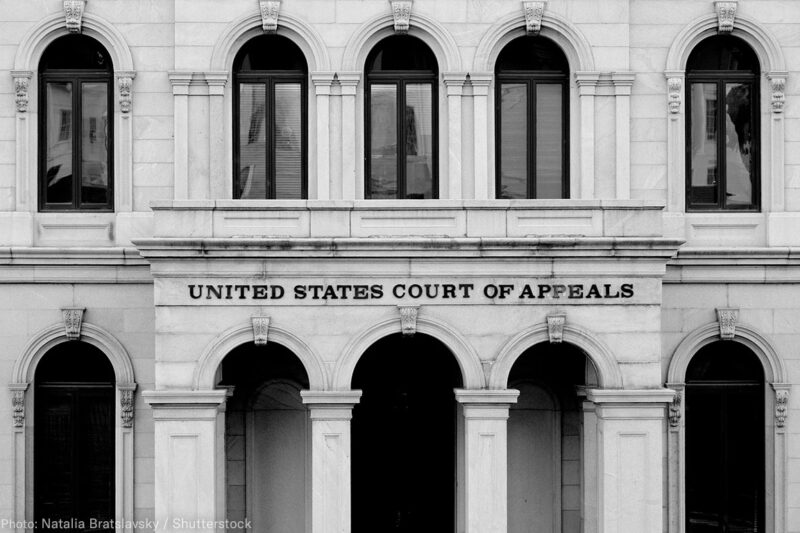
Once again, an appeals court ruled that President Trump’s Muslim ban — now in its third iteration — violates the Constitution’s most basic guarantee of religious freedom.
Earlier today, the Court of Appeals for the Fourth Circuit stated that the ban’s purpose has always been and remains to “exclude Muslims from the United States.” The ruling comes at a crucial time, because the Supreme Court will issue its own decision on the ban this summer.
Today’s decision confirms what has been clear since Trump first took office. Throughout his presidential campaign, he consistently promised to block Muslim immigration and even announced a specific plan for achieving that goal: a nationality-based travel ban against people from predominantly Muslim countries. As promised, one week into his presidency, without consulting any federal agencies, he issued an unprecedented ban against people from seven overwhelmingly Muslim countries.
Chaos ensued at airports across the country. Americans showed up in droves to stand up for their families, their neighbors, and their colleagues, driving home the message that religious bigotry has no place in our country. The courts quickly blocked the ban.
Since then, Trump has done everything in his power to carry out his goal. After the first ban was blocked, he instructed the government agencies he had ignored the first time around to “compile additional factual support,” as his lawyers put it, to implement the same basic policy. Sure enough, after three weeks, the president signed a second ban, this time targeting six predominantly Muslim countries. Courts blocked that second version, ruling that the president does not gain the ability to suddenly ban millions of Muslims simply by getting his cabinet to sign off on it.
The courts did, however, allow the administration to implement the president’s order to conduct a study of existing visa vetting procedures, to determine what other restrictions to impose. To oversee that process, Trump installed a Department of Homeland Security official who, like the president himself, had explicitly advocated for a ban on Muslim immigrants and surveillance of mosques in the United States. To no one’s surprise, that process led to a recommendation that the president do what he had already done twice: ban people from predominantly Muslim countries, virtually the same ones named in the first two versions of the ban.
Trump signed the third ban in September. Unlike the first two versions, which were temporary, this one permanently bans people from six Muslim-majority countries. It also bans people from North Korea, which sends almost no one to the United States, and a handful of government officials from Venezuela.
Thankfully, the courts have again roundly rejected the president’s attempt to keep Muslims out of the country. In December, the Ninth Circuit court of appeals ruled that the ban violates U.S. immigration laws, which do not allow the president to remove entire countries from our immigration system. The Supreme Court will hear that case this spring.
Today’s decision is notable because it is the first time an appeals court has ruled that the permanent ban violates the Constitution. The Fourth Circuit rejected the government’s attempt to portray the third ban as completely separate from the first two. As the court explains, “a reasonable observer could hardly swallow the claim that the addition of North Korea and Venezuela to the twice-enjoined travel ban” changed the ban’s basic purpose. The court pointed to “undisputed evidence that the President of the United States has openly and often expressed his desire to ban those of Islamic faith from entering the United States.”
The evidence is indeed overwhelming. Late last year, Trump posted three anti-Muslim videos intended to sow fear of Muslims immigrants and distrust between Christians and Muslims. And even while his agencies were studying their visa procedures, Trump made clear that he planned to impose the toughest possible ban, no matter what.
The ban, the court held, “strikes at the basic notion that the government may not act based on religious animosity.” It not only cuts against basic values of equality and freedom, it also does untold damage to thousands of American families, schools, hospitals, and businesses. As the decision says, the ban “inhibits the normal flow of information, ideas, resources, and talent” between other countries and our own. And it “denies the possibility of a complete, intact family to tens of thousands of Americans.” The human tragedies inflicted by the ban are impossible to overstate.
Read More: Living With The Muslim Ban
Despite today's ruling, the ban remains in effect while the Supreme Court considers the case. It is expected to hear arguments in April and to decide by June whether the president may indefinitely exclude millions of Muslims from uniting with their families in the United States. Let's hope the third ban’s rejection by the appeals courts is an indication of its ultimate fate.

